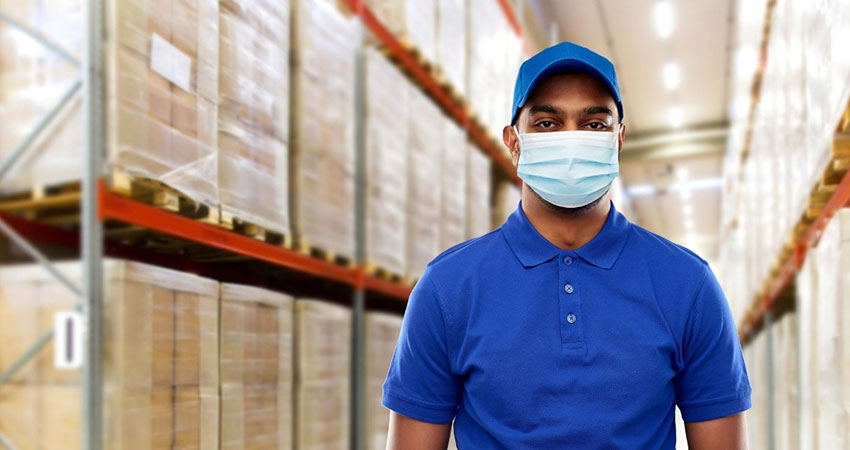According to the Institute for Supply Management, 97% of companies have already been or will be impacted by coronavirus supply chain disruptions, highlighting how the pandemic has shined a light on the need for greater risk management.
Now keenly aware of their vulnerabilities, companies are much more likely to build events like pandemics and other crises into their future business planning. They are reevaluating sourcing, warehousing, fulfillment and transportation practices, and exploring a range of strategies to help protect against future disruptions.
For support in retooling their supply chain, many companies are turning to third-party logistics providers. In fact, 12.4% of organizations intend to increase their use of third-party logistics in the wake of COVID-19, according to a recent survey by the Business Continuity Institute.
Utilizing a 3PL can help to mitigate risk for a number of reasons:
Essential Status
In the early days of the pandemic, state mandates to close nonessential businesses brought operations to a standstill for many companies. However, transportation and logistics was deemed a “critical infrastructure industry” by the Department of Homeland Security, so many 3PLs were required to maintain operations. This mandate allowed them to keep operations running even when the clients themselves had to shut their doors. Going forward, 3PLs will continue to retain this essential status.
Diversification
The pandemic revealed the risk associated with housing all inventory in a single distribution facility. If it’s forced to close due to infection or additional mandates, operations would come to a grinding halt. With the prospect of future waves of the coronavirus, many companies are adding facilities in multiple locations in order to create a larger distribution footprint.
Utilizing the resources of a partner can help them avoid the overhead investment for additional facilities. An established 3PL is likely to have existing FCs in strategic locations with the requisite staff, equipment and technology in place to operate them.
Flexible Facilities
As social distancing has become the new norm, logistics and fulfillment operations now need a significantly larger footprint to allow six feet between employees, on the warehouse floor as well as break areas, restrooms and offices.
Because 3PLs tend to have larger facilities, they often are better prepared to scale to accommodate distancing requirements. They can flex to meet their clients’ demands, either temporarily or for an extended period of time.
Reliable Staffing
The fast-spreading virus holds the potential to put a company’s entire workforce out of commission, practically overnight. For smaller businesses, this could be a mortal blow.
With a shared-space environment and an established pool of workers, a 3PL has more resources on which to draw. They may also incorporate automation and robotics solutions that can help to lessen labor requirements.
Ecommerce Expertise
While selling direct to consumer has been widely recognized as the wave of the future, the pandemic is driving shoppers online in record numbers. In fact, Coresight Research projects that U.S. ecommerce sales will grow by around 25% in 2020. As a result, many companies have put their plans for adding or expanding ecommerce channels on the fast track.
Online sales channels have different requirements for warehousing, fulfillment and transportation than traditional retail. Ecommerce orders typically require more space and labor as well as specialized facility design, technology solutions and shipping strategies. 3PLs with ecommerce expertise usually are better prepared to handle these requirements, thanks to flexible and scalable space, staffing, equipment and systems.
Ability to Pivot
With many states seeing a resurgence of the virus after reopening, the potential for another round of shutdowns lends a sense of urgency to risk management plans. With established resources in place, a 3PL can help get new operations up and running quickly, often in a matter of weeks. They are also able to adjust to accommodate new requirements that may be added.
As the country faces the potential of future waves of pandemic, it’s important to assess the potential for supply chain disruptions and take immediate action to address any pain points. The silver lining for these efforts? In the long run, 72% of CFOs who participated in PwC’s recent Pulse Survey said their company will be more resilient and agile as a result of COVID-19.
Jeff Jones is Vice President of Business Development, Order Fulfillment at Saddle Creek Logistics

